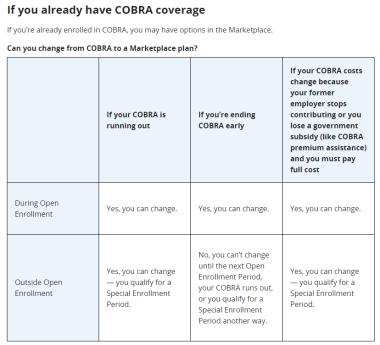COBRA & NJ Continuation
COBRA stands for Consolidated Omnibus Budget Reconciliation Act, which was enacted by the U.S. Congress in 1985. COBRA requires employers with 20 or more employees to offer continued group health insurance coverage to employees and their dependents who would otherwise lose coverage due to certain qualifying events, such as job loss or reduction in work hours, divorce or legal separation, or the death of a covered employee.
Under COBRA, eligible employees and their dependents can continue to receive health insurance coverage for up to 18 months, although coverage may be extended for longer periods under certain circumstances.
NJ Continuation is a state law in NJ that requires certain employers to offer continuation of group health insurance
coverage to employees and their dependents who would otherwise lose coverage due to certain qualifying events, such as job loss or reduction in work hours, divorce or legal separation, or the death
of a covered employee. The continuation of benefits is typically 18 months but can be 36 months if the loss of coverage
is due to divorce.
NJC is similar to COBRA, the federal law that provides for the continuation of health insurance coverage, but applies specifically to
employers with fewer than 20 employees who are not subject to COBRA. Under NJC, eligible employees and their dependents can continue to receive health insurance coverage for up to 18
months, although coverage may be extended for longer periods under certain circumstances.
Employers who are subject to NJC are required to provide notice of the availability of continuation coverage to employees who are eligible, and employees who wish to elect continuation coverage must do so within a specified time period. The cost of NJC coverage is typically higher than what the employee paid when they were employed, since the employer is no longer contributing to the cost of the premium.
KBenefits provides COBRA & NJ Continuation as a value-added service.









